வறுமை என்பது ஒன்றும் இந்தியாவின் தலைவிதி கிடையாது. ஒரு காலத்தில் இந்தியா ஏராளமான செல்வ வளங்கள் நிறைந்த வளர்ந்த நாடாக இருந்தது. ஆனால் இப்போதைய இந்தியாவின் நிலை என்ன? இந்தியர்கள் என்று சொல்வதில் பெருமைப்படும் நாம், அவற்றின் பொருளாதார வளர்ச்சியில் நம் கடமையை ஆற்ற தவறி விடுகின்றோம். ஏராளமான மக்கள் தங்கள் திறமையையும் உழைப்பையும் மற்ற நாடுகளில் தான் கொட்டுகின்றன. எல்லா நாடுகளும் முன்னேறும் பட்சத்தில் இந்தியா மட்டும் பொருளாதார ரீதியில் மெளனமாகவே உள்ளது. இதற்கு முக்கியமான காரணம் தகுதியில்லாத அரசாங்கம், கண்மூடித்தனமான தலைவர்கள் மற்றும் தெளிவான திட்டமிடல் இல்லாத அரசியல் கொள்கைகள். மக்களே! இதுவே நாம் விழித்தெழ சரியான தருணம். இந்திய பொருளாதாரத்தை சரியான திசையில் வளர வைக்க புதிய அரசியலமைப்பையும், அரசாங்கத்தையும் நாம் நிலைநாட்ட வேண்டும்.
I am a technology entrepreneur and a pioneer in Asia’s dotcom revolution. After creating India’s first Internet portals in the late 1990s, I started what is today India’s largest digital marketing company. My journey as an entrepreneur continues, but now in a different domain – nation building. I strongly believe that India needs transformation and we must be the entrepreneurs in that revolution.
***
***
Election after election, governments after governments, it is fairly clear that all are basically the same. They focus on grabbing power, winning the next election, and growing the size and scope of government at the cost of people. Elections are won by those who can talk the good talk but when it comes to implementing good policies, they all fail consistently.
ஒரு நல்ல அரசியல் அமைப்பு என்பது மக்களுக்கு தேவையான வசதிகளை பூர்த்தி செய்து அவர்களின் வாழ்வாதாரத்தை மேம்படுத்த வேண்டும். ஆனால் தற்போதைய அரசியலமைப்பு மக்களுக்கிட்டயே இருந்து அதிகமான வரி வசூல் செய்து மக்களின் வாழ்வாதாரத்தை கொள்ளையடித்து கொண்டு இருக்கிறது. இதைத்தான் அன்றைய வெள்ளையர்களின் ஆட்சி செய்தது.
இதையும் இந்தியாவில் வாழ்கின்ற 130 கோடி மக்களும் (நாம்) வெறுமனே வேடிக்கைப் பார்த்துக் கொண்டு இருக்கிறார்கள். இந்தியாவை சரியான பாதையில் கொண்டு செல்வதும் ஒவ்வொரு இந்தியர்களின் கடமை என்பதை மறந்து இந்தியாவில் வாழ்கின்றோம். உங்கள் குழந்தைகளிடம் என்ன சொல்ல போகிறீர்கள்? இந்தியாவை நல்வழி நடத்துவதை பற்றியா அல்லது அமைதியா உன் வேலையை பார் என்றா. அந்நியர் மாதிரி நடந்து கொள்ளும் அரசாங்கத்தை நாம் துறத்த வேண்டாமா?
***
இந்தியா ஒரு சுதந்திர நாடு. இருப்பினும் இங்கே மக்கள் மொழி, மதம், சாதி போன்றவற்றால் வேறுபட்டு இருக்கின்றனர். ஒரு இன மக்களை மட்டும் சமுதாயத்தில் பொருளாதார ரீதியாக முன்னேற்றி வருவது தான் இந்த அரசாங்கம். நீதி என்பது எல்லாருக்கும் சரி சமமாக கிடைப்பதில்லை. ஏன் மக்களின் பொருளாதாரமே அவர்கள் கையில் இல்லை. எல்லாம் அரசாங்கத்தால் கண்காணிக்கப்படுவதும் கட்டுப்படுத்தப்படுவதுமாகத்தான் உள்ளது. பின்னே எப்படி இந்தியா வறுமை கிணற்றில் இருந்து மீளும்.
இந்தியாவில் உள்ள 92% மக்களின் மொத்த பொருளாதார மதிப்பு வெறும் 6.5 லட்சம், ஒரு நடுத்தர இந்தியனின் வருடாந்திர வருமானம் 1.2 லட்சம், அகில உலக உற்பத்தி திறனில் இந்தியா 200 நாடுகளில் 120 வது இடத்தைப் பெற்றுள்ளது. இதில் பாதி இந்தியாவில் நிறைய குழந்தைகள் அவர்களின் கல்வித் திறன் குறைந்துக் காணப்படுகின்றன. அவர்களின் எதிர்காலம் கேள்விக்குறியாக உள்ளது. 60 கோடி நடுத்தர மக்களின் ஒரு நாள் வருமானம் வெறும் 130 - 650 ரூபாய் தான்.
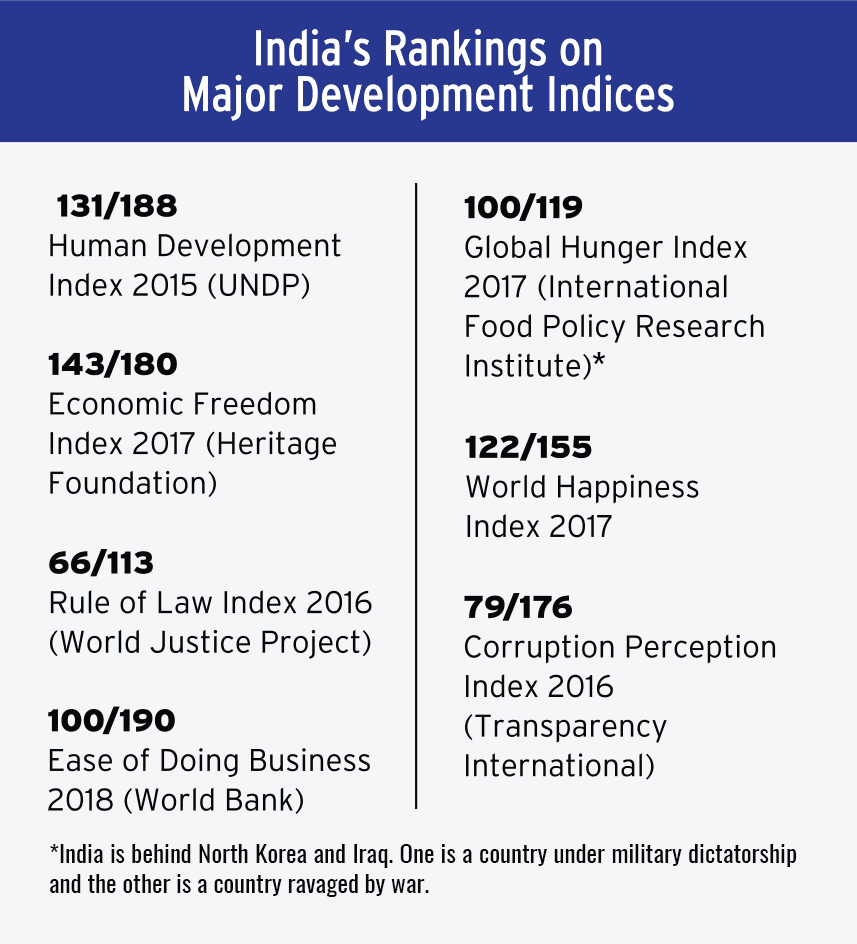
மனித வளர்ச்சியில் இருந்து ஒவ்வொரு குறியீட்டையும் வியாபாரம் செய்து, இந்தியா மோசமாக செயல்படுகிறது. ஆழமான மற்றும் குறைபாடுள்ள அரசாங்க தலையீடுகள் - அனைத்து காரணங்களிலும் மூல காரணம் ஆகும்.
இந்த வறுமை பிரிவு தான் நமது அரசியல் கட்சிகளுக்கு சாதமாக அமைகிறது. இந்த மாதிரியான மக்கள் எப்படி அதிகமான வரி கட்ட முடியும். அவர்களின் வருமானத்தை அப்படியே வரியாக கட்ட வேண்டிய ஒரு நிர்பந்த நிலைக்கு தள்ளப்படுகின்றனர். இவர்களால் முன்னேறவே முடியாத நிலையில் தான் அவர்கள் அன்றாட வாழ்க்கையை வாழ்ந்து வருகின்றனர்.
ஒரு குறிப்பிட்ட இன மக்கள் மட்டும் வரிக் கட்டி வியாபாரம், தொழில் என்று முன்னேறி வருகின்றனர். அவர்கள் மட்டும் படித்து வேலை வாய்ப்பு போன்றவற்றை பெறுகின்றனர். அப்புறம்
எப்படி இந்தியாவில் வறுமை ஒட்டுமொத்தமாக ஒழியும்?
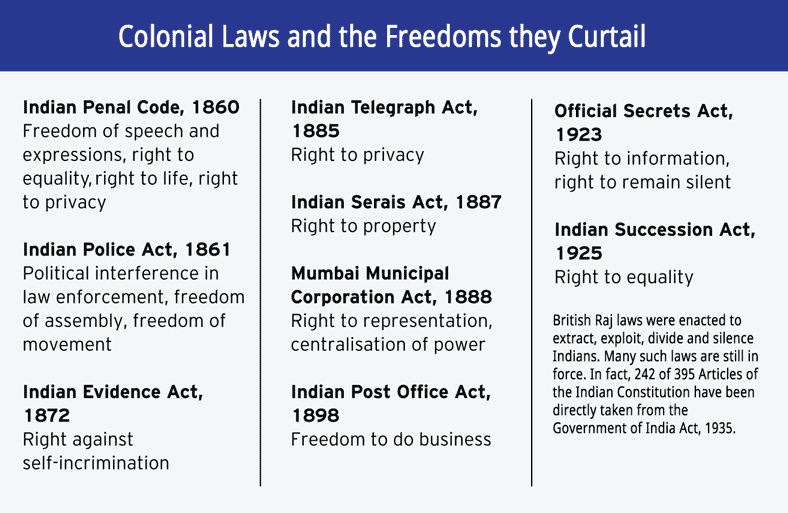
பிரிட்டிஷ் ராஜ் என்ற சட்ட வல்லுநர், மக்களின் பொருளாதார உரிமையில் கை வைப்பது சட்டப் படி குற்றம் எனக் கூறுகிறார். அதைத் தான் இப்போதைய அரசாங்கம் செய்கிறது என்கிறார்.
கடந்த 70 வருடங்களாக நமது அரசாங்கம் மக்களின் பொருளாதாரம் மற்றும் தொழில் போன்றவற்றில் தலையிட்டு கேடு விளைவித்துக் கொண்டு இருக்கிறது. மக்களின் அன்றாட வாழ்க்கை வசதிகளான அனைத்தையும் வரி என்ற பெயரில் விட்டு வைக்கவில்லை.
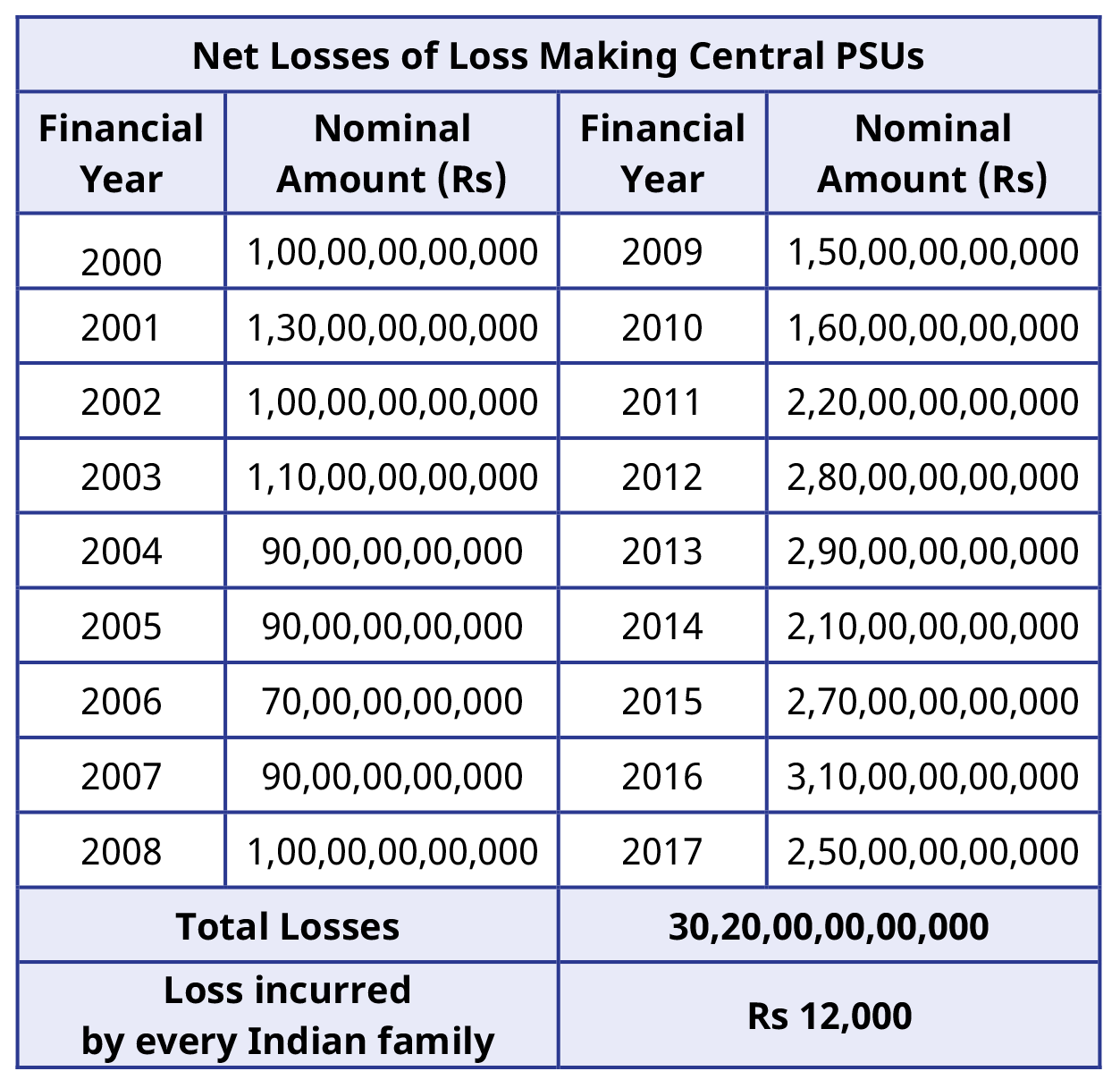
Every Indian family has been forced to pay ₹12,000 towards the losses. This figure is just for the Central PSUs. There are hundreds of state government entities as well which lose money on a regular basis.
அவர்களுக்கு பதவி வேண்டும் என்ற ஆசையில் மட்டுமே மக்களிடம் வாக்குகளை கேட்டு அலைகின்றனர். எந்த ஒரு அரசியல் அதிகாரியும் வறுமைக் கோட்டுக்கு கீழ் வாழும் மக்களை பற்றி நினைப்பதில்லை.
***
நமது வாக்குகளையும் சாதி, அரசியல் வாதிகளின் புகழ் , சன்மானம், மானியங்கள், தேர்தல் கொள்கைகள், இலவசம் போன்றவற்றிற்கு விற்று விடுகிறோம்.
ஆனால் அவர்களின் தேர்தல் கொள்கைகள் ஒன்றைக் கூட அவர்கள் நிறைவேற்றவில்லை. சுரண்டல் அதிகாரிகள் மேலும், மேலும் பணக்காரர் ஆகிறார்கள்.
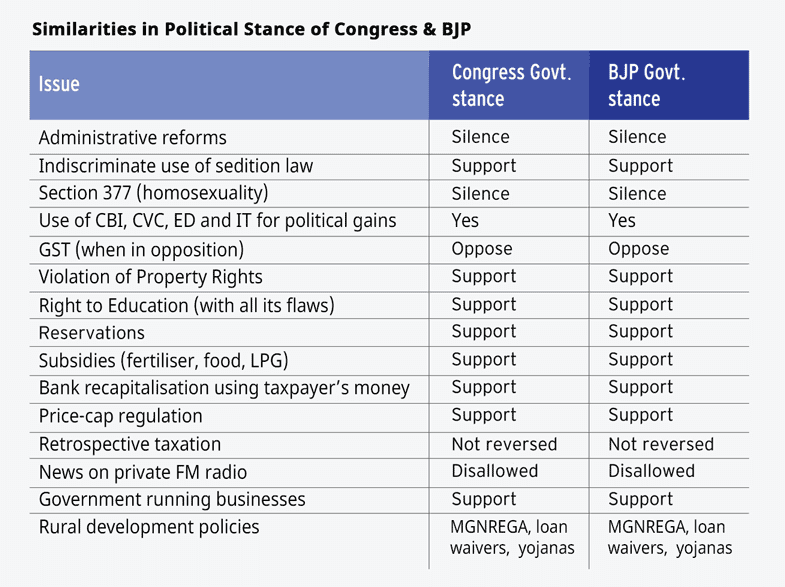
ஓட்டு போட்ட நாம் ஓட்டுக்கானப் பணத்தை மட்டும் வைத்துக் கொண்டு காலத்தை தள்ளுகிறோம் என்பதை மறக்காதீர்கள்.
இந்தியாவில் கொள்கையாளர்கள் மாறிகின்றனர். ஆனால் அவர்களின் கொள்கைகள் மாறவில்லை.
***
130 கோடி மக்கள் நிரம்பிய இந்தியாவில் எதிர்காலத்தில் நிறைய விஞ்ஞானிகள், எழுத்தாளர்கள், அறிவியல் அறிஞர்கள், சமூக முன்னேற்ற வாதிகள், மருத்துவர்கள் , பொறியாளர்கள் இப்படி யார் வேண்டுமானாலும் உருவாகலாம். ஆனால் அவர்களுக்கு சரியான வாய்ப்புகள் மலர வேண்டும். இந்த வாய்ப்புகள் எல்லாம் ஏழையின் வீட்டு வாசலை கூட மிதிக்க போவதில்லை. இந்த நிலை இருந்தால் நம் குழந்தைகளின் எதிர்கால கனவுகள் எங்கே. இந்தியாவின் முன்னேற்றம் எங்கே போகும்.
நமது இந்தியா போன்ற அண்டைய நாடுகள் கூட தனது குடிமக்களின் கல்வி, தொழில், பொருளாதார வசதிகளை மேம்படுத்துகிறது. அதனால் தான் சிங்கப்பூர், தென்கொரியா போன்ற நாடுகளும் பொருளாதார ரீதியில் வளம் பெற்று வருகின்றனர்.
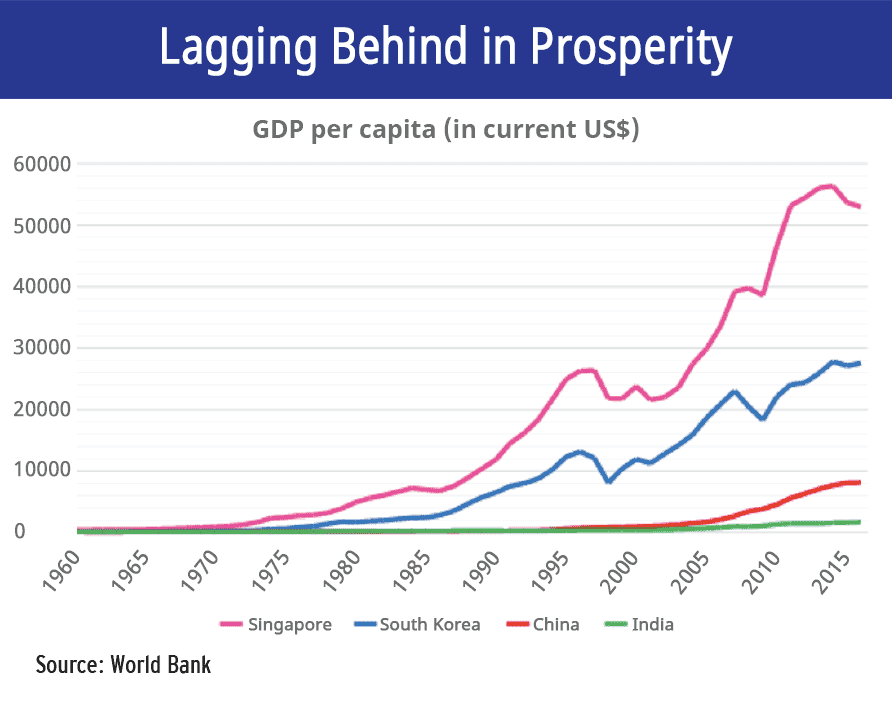
ஆனால் நமது வாய்ப்புகளோ நம் அரசியல் அமைப்பால் பிச்சு பிடுங்கப்பட்டு விடுகிறது.
அந்த நாட்டு மக்களால் சுதந்திரமாக தொழில் மேற்கொள்ள முடிகின்றன. ஆனால் இங்கே அது ஏழைகளுக்கு கனவாகவே உள்ளது. இந்தியா ஒரு சுதந்திர நாடு என்பது அரசியல் வாதிகளுக்கு மட்டுமே பொருந்தும்.
This is Dhan Vapasi’s objective.
***
Dhan Vapasi is a platform to bring together Indians who wish to make India prosperous. The core objective is to unite citizens on an agenda of freedom, equality and wealth creation.
Dhan Vapasi’s 5 Prosperity Principles and 5 Starting Solutions will usher in a new model for governance and politics in India.
நயி த்தீஷா கொள்கைகள்:
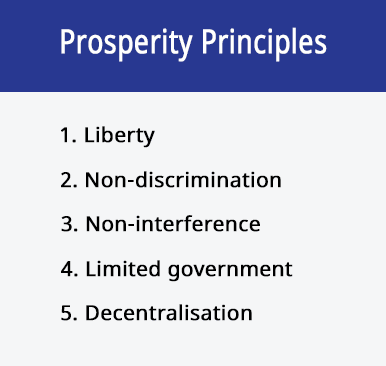
ஒவ்வொரு வெற்றிகரமான நிறுவனத்தைப் போலவே, இந்தியாவின் அனைத்துக் கொள்கைகள் மற்றும் கொள்கைகள் அதன் அடிப்படை அடிப்படையிலான கொள்கைகள் கொண்டிருக்கும். இந்த கொள்கைகள் அதன் குடிமக்கள் மூலம் புரிந்து கொள்ளப்பட வேண்டும், எனவே புரிந்துகொள்ளக்கூடியதாகவும் குறைவாகவும் இருக்க வேண்டும்.
Dhan Vapasi’s Prosperity Principles are based on the precept 'that government is best which governs the least'. They will help India become a liberal society with the individual as the principal and the government as the agent. All policies must be based on these principles.
1. சுதந்திரம்: இந்த நாட்டில் பிறந்த ஒவ்வொரு குடிமக்களுக்கும் தனி மனித சுதந்திரம் உண்டு என்பது நாம் எல்லார்க்கும் தெரிந்தது. பேச்சு, செயல் மற்றும் பொருளாதார சுதந்திரம் இப்படி ஒன்றையும் விட்டு வைக்கவில்லை இப்போதுள்ள அரசாங்கம். எல்லாவற்றையும் தங்கள் கட்டுப்பாட்டில் வைத்துக் கொண்டு மக்களை கேள்வி பொருளாக்கிக் கொண்டு இருக்கிறது. இதை மாற்ற வேண்டும்.
2. பாரபட்சம் இல்லை : ஒரு உண்மையான அரசியல் அமைப்பு மக்களிடையே பாரபட்சம் இல்லாமல் நடந்து கொள்ள வேண்டும். எந்த ஒரு தனிப்பட்ட பிரிவுக்கோ மக்களுக்கோ எந்த விதமான ஸ்பெஷல் சலுகையும் தரப்படக் கூடாது.
3. குறுக்கீடு செய்யாமை : மக்களின் தனிப்பட்ட சுதந்திரத்தில் அரசாங்கம் தலையிட கூடாது. வாய்ப்புகளும் கொள்கைகளும் அனைத்து தரப்பட்ட மக்களையும் சரி சமமாக சென்றடைய வேண்டும். அரசாங்கம் கட்டுப்பாட்டுடன் செயல்பட வேண்டும். தொழிலதிபர்கள் மற்றும் பணக்காரர்கள் என்ற பாரபட்சம் பார்க்காமல் பொதுமக்களுக்கு நன்மைத் தரக் கூடிய விதத்தில் செயல்பட வேண்டும்.
4. அரசாங்கம் கட்டுப்பாட்டுடன் செயல்பட வேண்டும் : தொழிலதிபர்கள் மற்றும் பணக்காரர்கள் என்ற பாரபட்சம் பார்க்காமல் பொதுமக்களுக்கு நன்மைத் தரக் கூடிய விதத்தில் செயல்பட வேண்டும்.
5. பரவலாக்கம் : மாநில மக்களின் கருத்தைக் கொண்டு உள்நாட்டு அரசியல் கட்சிகள் செயல்பட வேண்டும். மத்தியக் கட்சிகளின் தீர்மானத்தை கொண்டு செயல்பட கூடாது.
Starting Solutions
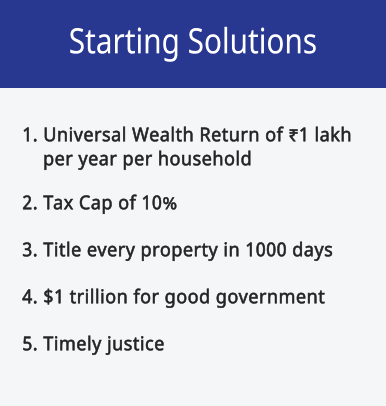
The public wealth of India (comprising land, minerals and other resources, and government-owned corporations) is estimated by Dhan Vapasi to be in excess of $20 trillion. This comes to a minimum of ₹50 lakh for every Indian family.
Dhan Vapasi’s two key solutions – returning ₹1 lakh per year per family and capping taxes at 10% – aggregate to an annual benefit of about ₹1.5 lakh for every household. Besides putting more money in the hands of people, these initiatives will also create a safety net for every Indian family, eliminate poverty, scale up job creation, reverse the growth of government and empower Indians to create wealth. This will boost private investment and economic growth, making additional resources available for public infrastructure and growing state capacity in the areas that it is currently deficient.
Dhan Vapasi’s other three solutions are about ensuring good governance – by titling every property in the country and thus ensuring that people can unlick their private wealth, investing in the core activities of government, and ensuring timely justice.
1. வருடாந்திர 1 லட்சம் ரூபாய் ஒவ்வொரு இந்திய குடும்பத்திற்கும் வழங்கும் திட்டம்
இந்தியாவின் வளங்கள் அனைத்தும் ஒவ்வொரு இந்திய குடிமக்களுக்கும் உரிமையானது. அதைக் கட்டுப்பாட்டில் வைத்திருக்கும் அரசாங்கம் அவற்றில் இருந்து வரும் தொகையில் சராசரி ஒரு லட்சம் ரூபாயை இந்தியக் குடும்பத்திற்கு வழங்க வேண்டும்.
இதன் மூலம் அவர்கள் தங்கள் தொழில், கல்வி, வேலை வாய்ப்பு, பொருளாதாரம் இவற்றை மேம்படுத்த இயலும். மக்களின் பொருளாதார முன்னேற்றமே நாட்டின் வளமாக வளர்ந்து நிற்கும்.
You can read about our Dhan Vapasi ideas here.
2. வரித்தொகை 10%
வரி என்பது இந்தியாவில் கிடையாது. ஜிஎஸ்டி என்ற பெயரில் கொள்ளை தான் அடிக்கப்படுகிறது. இப்படியே அரசாங்கம் செய்து வந்தால் மக்களால் தொழில் தொடங்க முடியாத நிலை உருவாகி விடும். தொழிலில் முன்னேற்றமில்லை என்றால் நாட்டின் பொருளாதாரம் எங்கே முன்னேறும். எனவே மக்களின் மீதான வரி விதிப்பை குறைத்து தொழில் தொடங்க மக்களுக்கு பணத்தைக் கொடுக்க வேண்டும்.
3. Title every property in 1000 days
In his book The Mystery of Capital, Hernando de Soto says: “The poor inhabitants of these [poor] nations—five-sixths of humanity—do have things, but they lack the process to represent their property and create capital. They have houses but not titles; crops but not deeds; businesses but not statutes of incorporation… As a result, most of them are undercapitalised, in the same way that a firm is undercapitalised when it issues fewer securities than its income and assets would justify. The enterprises of the poor are very much like corporations that cannot issue shares or bonds to obtain new investment and finance. Without representations, their assets are dead capital.”
Many people live in homes where the title to the property is not clear. This also applies to small shops. As a result, while they may occupy the space, the property itself cannot be converted into collateral for credit, thus limiting the ‘owner’s’ ability to monetise the underlying asset.
Lack of clear titles is one of the biggest reasons for litigation. A dispute means that the underlying property cannot be monetised or used for productive purposes. In India, land disputes are also one of the biggest reasons for violence.
It is now possible to use a mix of on-ground technology with satellite data to accelerate the process of mapping every property and assigning clear title to every property in India in less than three years.
4. $1 trillion for good government
A good government is about the provision of public goods — things that only government can do, and which are the main functions of government. India’s governments do hundreds of other things and compromise on the basics. This means:
5. Timely Justice
A functioning justice system is the foundation of a prosperous society. Justice delayed is justice denied. The government must protect all citizens from coercion and deliver timely justice.
A 3-2-1 formula must be followed by the courts: 3 years to clear all pendency, 2 years for passing judgement in new cases, and 1 year for resolution of an appeal.
***
In the past 70 years, India’s rulers have become rich, but not its people. It is time to change that. If you share my dream to make India prosperous, join Dhan Vapasi and me to transform India with a new model of governance and politics. Write to me at rajesh@nayidisha.com
“We can make India prosperous. The future of over 130 crore Indians depends on what we do today. Let us not waste any more time. Join Dhan Vapasi.
ராஜேஷ் ஜெயின் தான் முதன் முதலில் ஆசிய டாட்காம் புரட்சியின் மாற்றத்திற்கு முன்னோடியாக திகழ்ந்தவர். இந்தியாவிற்கான முதல் இணையதளத்தை உருவாக்கியவர் 1990 ல் இவர் கொண்டு வந்த இந்த தொழில்நுட்ப புரட்சி தான் இன்று இந்தியா உலகளவில் மிகப்பெரிய தொழில்நுட்ப சந்தையாக மாறியுள்ளது.